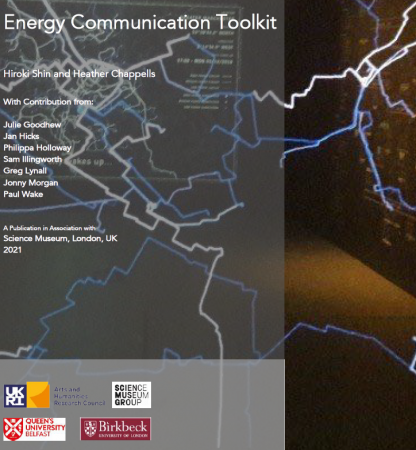Energy Communication Toolkit

“Despite the broadening of the energy communication field, few extant studies have shed light on the inherent challenges associated with the act of communicating energy issues. Foregrounding such challenges would be of interest to those who are involved directly in energy communication, as well as those who want to understand how energy-related knowledge is communicated in society. As an initial examination of this topic, this toolkit primarily takes stock of insights derived from contemporary communication practices, but it is also informed by recent research from the field of communication studies and the social science of energy. As much as this toolkit contributes to the understanding of what it means to communicate energy, it is first and foremost intended to help energy communicators reflect on how they communicate energy. An interactive toolkit format is adopted because energy communication is very much a practice-oriented field. This toolkit introduces some theoretical concepts and insights to readers, but our main concern is to encourage users to experiment, play with, modify and act upon the ideas and templates provided in ways that inform their practice of energy communication. Designed in this way, the toolkit bridges the gap between ideas and practice, between textbook-style instructions and the trial and error of learning by doing. The tools provided in each chapter act as templates to help communicators anticipate challenges prior to implementing an energy communication project. Equally, these tools can be used to identify issues during or after a project in order to improve future communication. Another envisaged use of the toolkit is to increase readers’ understanding of energy communication as a distinctive field and to appreciate the value of approaching this communication challenge as a dynamic and participatory process.
A core premise underlying this toolkit is that better communication of energy issues can be achieved by understanding the distinctive characteristics of energy and how it is encountered within society in diverse ways. The following four energy characteristics are identified as fundamental issues that comprise the main challenges for energy communication:
1. Energy is a technical subject that is also related to everyday life.
2. Energy has both visible and invisible dimensions.
3. Energy use is mediated by material objects.
4. Energy is a public and social concern.
The five tools in this toolkit are designed to address these four issues from a communication perspective; however, they are not intended to tell readers how to conduct energy communication. Rather, they are intended to be used as a set of adaptive methods to help communicators reflect on their communicative practices by using their own projects as examples. The exercises also offer somewhat unconventional methods through which to plan and review communication projects in order to reconsider the fundamental question of how to approach energy communication” (p.5-7).
